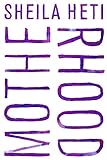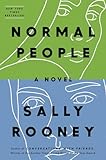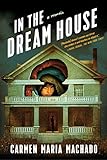2019 was the year I finally broke down and joined a book club. Alternatively: 2019 was the year I finally made good on three years of promises to start a book club with some of my closest friends. Both are true, though it’s just the one club. Being a part of it has meant admitting to about a dozen things simultaneously, chiefly that I’ve struggled to hold the room in my life for reading and talk about reading; that for a long time I found book clubs a little embarrassing because I am sometimes a snob; and that it is very good for me to be less of a snob and just enjoy good things when they’re good. Incidentally, book club has been great, one of the highlights of my year. I should have made it happen a long time ago. Now, partly in celebration of book club and partly because it is December at The Millions, here, in no particular order, are some of the books I read for the club, read for myself, or some combination of the two.
To begin: Jia Tolentino’s Trick Mirror, the hit favorite of book club. It was our first pick, and we continue to meet at least partly as Jia fans. This has a lot to do with her very-online presence, which feels both ironic and deeply relatable. We call her “Jia” like we know her; she likes the music we like, and the clothes, and a lot of the same jokes, and we know this because she tells us on Twitter and in The New Yorker and every other online forum targeted at women our age. But there’s more to Trick Mirror, her first essay collection, than just the thrill of seeing someone who seems to talk and think and live like us and our friends make it to the big-time. The precision of Tolentino’s thinking and writing, her humor and depth, her framing and interrogation of the forces that have shaped her life and mine and all of ours, are evident in each piece, whether it’s about growing up on the internet or in a Houston megachurch. More importantly, her central question—how to live ethically or mostly-morally or even just less-shittily in our corrupted, hyper-capitalistic, online-first, scam-fest times — is one of the most significant I can think of, and Tolentino’s a lot better than most at both expressing and thinking through that puzzle, even if there’s no perfect answer.
 Tolentino’s question isn’t far off from Sheila Heti’s in How Should a Person Be?, if you take the title question at face value, which may be why I read Heti’s novel immediately after Trick Mirror. The novel surprised me; somehow, after having read Heti’s Motherhood, I was expecting something more individualistic, almost excessively self-interested, than what I encountered. Not that How Should a Person Be? isn’t excessively self-centered, but it struck me more as a meditation on the relationships we need to really live, a paean to the necessity of friendship when you’re trying to decide who and what you are and should be. Heti’s namesake character is obsessive, and her thinking can be both circular and shockingly clear, which I found equally beautiful and maddening. But it’s the conversations with her friends that give the book its best passages. “A novel from life,” in these sections it feels like you’re watching someone sort themselves out in real time. It’s exciting, challenging, and kinda makes you want to yell at the book. I really liked it.
Tolentino’s question isn’t far off from Sheila Heti’s in How Should a Person Be?, if you take the title question at face value, which may be why I read Heti’s novel immediately after Trick Mirror. The novel surprised me; somehow, after having read Heti’s Motherhood, I was expecting something more individualistic, almost excessively self-interested, than what I encountered. Not that How Should a Person Be? isn’t excessively self-centered, but it struck me more as a meditation on the relationships we need to really live, a paean to the necessity of friendship when you’re trying to decide who and what you are and should be. Heti’s namesake character is obsessive, and her thinking can be both circular and shockingly clear, which I found equally beautiful and maddening. But it’s the conversations with her friends that give the book its best passages. “A novel from life,” in these sections it feels like you’re watching someone sort themselves out in real time. It’s exciting, challenging, and kinda makes you want to yell at the book. I really liked it.

 Exciting, challenging conversation is also at the core of Sally Rooney‘s aptly named first novel, Conversations with Friends. I read it after Normal People, her second, and while the sophomore book strikes me as the better, or at least the more polished, I prefer the first. Frances and Bobbi, the leads, fizz with an anxiety to both please and pull away. They distrust themselves yet can’t help but show off, and they talk their way through the novel in sharp, competitive bursts. Everything is up for discussion, is in-bounds. It might not always work perfectly, but it’s thrilling to read, and the characters feel as real to me as the friends I really do converse with. On a weekend in Dublin this summer I almost thought I could see them smoking outside the pub.
Exciting, challenging conversation is also at the core of Sally Rooney‘s aptly named first novel, Conversations with Friends. I read it after Normal People, her second, and while the sophomore book strikes me as the better, or at least the more polished, I prefer the first. Frances and Bobbi, the leads, fizz with an anxiety to both please and pull away. They distrust themselves yet can’t help but show off, and they talk their way through the novel in sharp, competitive bursts. Everything is up for discussion, is in-bounds. It might not always work perfectly, but it’s thrilling to read, and the characters feel as real to me as the friends I really do converse with. On a weekend in Dublin this summer I almost thought I could see them smoking outside the pub.
 Though it’s not quite 2020, my year in reading really ended with Carmen Maria Machado’s In the Dream House. I read the last words a week ago, and in the seven days since I’ve sent three friends to the bookstore to buy their own copies. I won’t lend mine out just yet because I’m hoping to reread the entire thing before the holidays. Machado’s ability to write her own pain while recalling other, unwritten stories and to invent new structures while wrestling with missing history is an empathetic marvel; reading it is a masterclass in form. It was the best book I read this year, hands down. I’m pitching it for book club next.
Though it’s not quite 2020, my year in reading really ended with Carmen Maria Machado’s In the Dream House. I read the last words a week ago, and in the seven days since I’ve sent three friends to the bookstore to buy their own copies. I won’t lend mine out just yet because I’m hoping to reread the entire thing before the holidays. Machado’s ability to write her own pain while recalling other, unwritten stories and to invent new structures while wrestling with missing history is an empathetic marvel; reading it is a masterclass in form. It was the best book I read this year, hands down. I’m pitching it for book club next.
More from A Year in Reading 2019
Do you love Year in Reading and the amazing books and arts content that The Millions produces year round? We are asking readers for support to ensure that The Millions can stay vibrant for years to come. Please click here to learn about several simple ways you can support The Millions now.
Don’t miss: A Year in Reading 2018, 2017, 2016, 2015, 2014, 2013, 2012, 2011, 2010, 2009, 2008, 2007, 2006, 2005
The post A Year in Reading: Kaulie Lewis appeared first on The Millions.
Source : A Year in Reading: Kaulie Lewis








